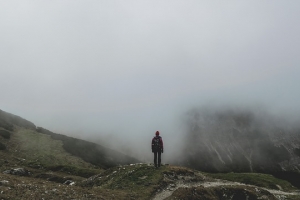Billing hikers for rescue services

In 2008, New Hampshire adopted a law that allows the state to bill a lost or injured hiker for the cost of their rescue if the hiker was negligent.
The measure, which came in response to the rising costs of rescues in the White Mountains of individuals who were not prepared or equipped to handle the conditions, also included the option to purchase a Hike Safe Card for $25. The cards indemnify hikers against the costs of rescue operations on their behalf regardless of whether they are deemed negligent.
Costs still high
But the issue of hiker rescues and the costs continues unabated, and state Sen. Jeb Bradley (R-Wolfeboro) has suggested that anyone who is saved during a search and rescue operation should pay something toward that effort whether they have a Hike Safe Card or not.
Bradley is an experienced hiker himself, having completed the grid of 48 of New Hampshire’s 4,000-foot peaks. He argued that the Hike Safe program has been "very successful" and has raised more than $100,000 last year. But he said that's not enough to support the rescue fund, which also gets funding from fees on boats, snow machines and OHRVs registered in New Hampshire. Search and rescues are also supplemented with proceeds from fishing and hunting licenses.
Regardless of whether someone has a Hike Safe Card, Bradley wants to implement a mandatory minimum rescue fee of $500 to $1,500 depending on the cost of the rescue. A measure is likely to be introduced in the 2018 session of the state Legislature.
Should NH charge hikers for rescues?
Supporters of Bradley’s idea say the state needs a way to recoup some of the costs of rescues, which can be frequent and expensive. Conway Fire Chief Steve Solomon noted his department has been involved in eight wilderness rescues and six swift water rescues this year. He said a carry-out from Mount Chocorua can cost thousands of dollars.
Opponents say hiking in the White Mountains is inherently dangerous, even for the well prepared and well equipped, and that search and rescue is part of what a state like New Hampshire should budget for. The threat of an assessment, they say, might discourage someone from calling for help, risking serious injury or even death.
Should the state mandate reimbursement for wilderness rescues? Tell us your thoughts in the comments section below.











Comments
Login or register to post comments